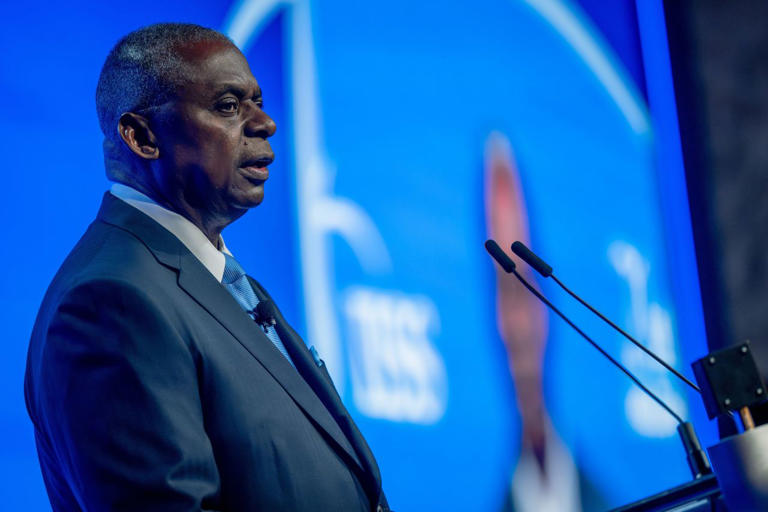U.S. Defense Secretary Lloyd Austin stated that a war with China is “neither imminent nor unavoidable.” This statement came during the Shangri-La Dialogue, a premier security summit in Singapore, following Austin’s first in-person meeting with Chinese Defense Minister Adm. Dong Jun.
Austin stated the Biden administration’s commitment to cooling tensions despite recent military frictions around Taiwan and the South China Sea. He highlighted the importance of direct communication channels between the U.S. and China to prevent any unnecessary escalation.
“Our goal is to make sure that we don’t allow things to spiral out of control unnecessarily,” Austin said, reinforcing that conflict is not a foregone conclusion. The 75-minute meeting with Adm. Dong Jun was described as “clear and candid” by a U.S. official and “positive” by a Chinese Defense Ministry spokesman.
In his speech, Austin reiterated U.S. support for its allies in the Indo-Pacific, acknowledging their concerns over China’s increased military activities. He underscored that the U.S. prioritizes the Indo-Pacific region even as it engages in other global conflicts.
Austin also detailed efforts to strengthen military and defense ties with nations such as South Korea, Japan, the Philippines, and India, fostering a united front for a “free and open Indo-Pacific.” This collaboration includes co-producing military equipment and expanding joint exercises.
The U.S. stance on the South China Sea was clear as Austin condemned China’s aggressive maneuvers around disputed areas like Second Thomas Shoal. He reaffirmed that any armed attack on Philippine vessels would invoke the U.S.-Philippines mutual defense pact.
China’s response was swift and critical. Lt. Gen. Jing Jianfeng accused the U.S. of promoting division through its Indo-Pacific strategy and likened it to an attempt at creating an “Asia-Pacific version of NATO.” Jing defended China’s activities as legitimate and condemned U.S. and Philippine actions as provocations.
During a Q&A session, Austin firmly dismissed the notion that NATO’s expansion prompted Russia’s invasion of Ukraine, attributing the crisis to President Putin’s unlawful actions. This response was met with applause, underlining Austin’s stance on international law and order.



